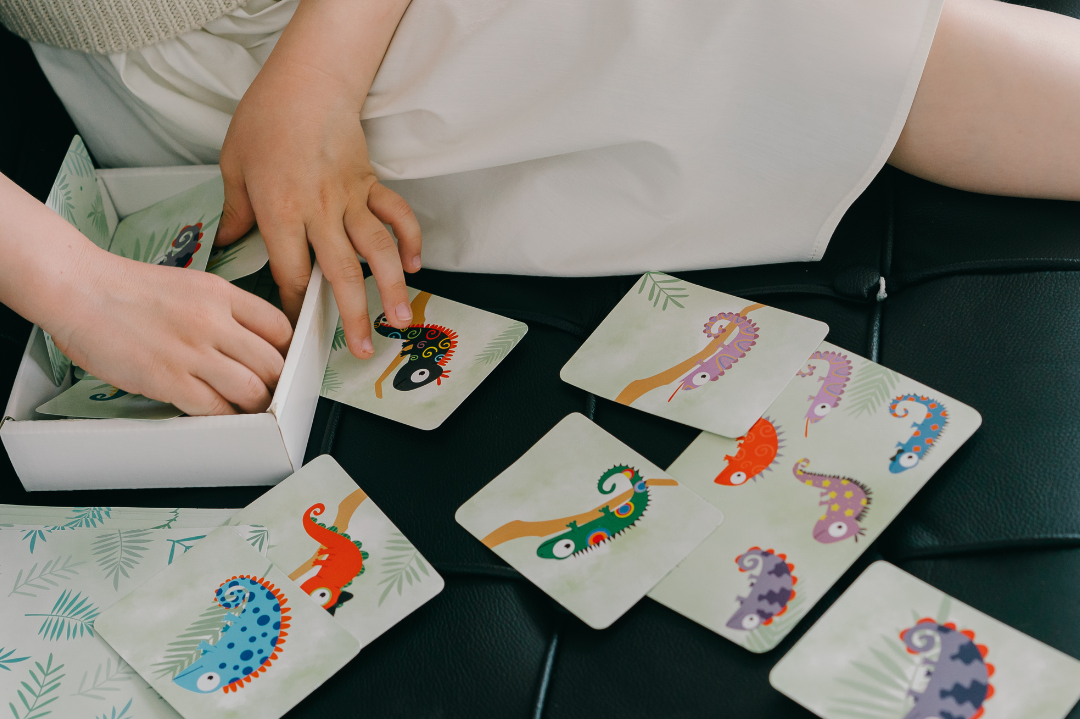Share This Story, Choose Your Platform!
Finding Voice in Play: The Power of Play Therapy in Counselling Children
Asking a child to share their thoughts and feelings at the best of times can be difficult, particularly when they lack the vocabulary and cognitive abilities to articulate their emotions and experiences in a manner that an adult can understand. Herein lies the power of play. In counselling, Play therapy transcends mere entertainment; it is an avenue through which children are able to invite you into their worlds, and show you how they are navigating their internal and external landscapes. Given the profound impact of play on human development and well-being, it’s no surprise that it has found a valuable and meaningful place in the field of counselling.
A Short History
Play in human development is an extensively researched phenomenon that has yielded a steady stream of knowledge demonstrating that play is an inherent human activity important to our physical and psychological growth. Jean Piaget’s renowned theory of cognitive development illustrates how, during the preoperational stage, children are capable of abstract thinking through the use of symbols, often expressed through symbolic play and representation to express themselves (Koukourikos et al., 2021). Building upon this foundation, prominent figures such as Virginia Axline and Violet Oaklander brought play into the counselling setting. Recognising its potential to bridge the gap between the symbolic nature of play and language expression (Koukourikos et al., 2021).
Play Therapy is a specialised approach in psychotherapy that applies ‘play activities’ in the therapeutic process to help individuals, primarily children, explore their emotions, thoughts, and experiences. Within the framework of a safe and supportive therapeutic environment, play therapy allows clients to express themselves through various creative mediums such as toys, art, storytelling, and role-playing. When play is used in a manner that is tailored to the child’s developmental stage, it offers a unique and highly effective means that allows children to explore their emotions, trauma, and psychological challenges.
For example, consider a child named Sarah who has witnessed a traumatic event. In traditional talk therapy, Sarah might struggle to describe her feelings, leading to frustration and resistance. However, in a play therapy session, Sarah is provided with a sandbox and miniature figures. She creates a scene in which the figures represent her family members and the traumatic event. Sarah doesn’t need to find words; the counsellor can see through her play how she perceives the event, her emotions, and her relationships with family members. It’s a powerful form of self-expression that offers a breakthrough in understanding and healing. The counsellor is able to observe the play and provides a space for the child to tell their story and be heard, even when they cannot find the words.
How Play is Used in Counselling
Counsellors incorporate play therapy techniques to help individuals explore and navigate their emotional, behavioural, and psychological difficulties. Play therapy finds application in various counselling settings, mostly with children, but also with adults who may struggle to express themselves verbally (Landreth & Bratton, 1999).
It is widely used in schools, private practices, community centres, and mental health facilities. In these settings, mental health professionals create a safe and structured environment filled with toys, art supplies, sand-play and other creative resources. These tools allow clients to engage in play as a healing process. The counsellor observes and interacts with the client during play sessions, guiding them towards self-discovery and emotional healing.
How It Enriches the Counselling Process
In this therapeutic approach, play facilitates a multitude of vital processes that enrich the counselling experience for children. Play therapy provides an invaluable way for children to express their emotions freely and without judgement, easing the anxieties that often accompany vulnerability. Whether they are grappling with anger, sadness, joy, or a complex blend of feelings, the safe and non-judgmental space created by play therapy offers them an opportunity to convey these emotions symbolically.
Additionally, Play therapy encourages exploration and creative problem-solving, offering children a platform to experiment with potential solutions to their issues. Through play, they can develop essential problem-solving skills that will serve them well in various aspects of their lives. This approach isn’t just about finding immediate solutions but also about teaching children how to think critically and navigate challenges, fostering self-reliance and confidence.
Moreover, play therapy is a powerful promoter of resilience. It equips children with the tools they need to cope with adversity and stress. Children have the opportunity to learn to adapt and find inner strength to confront difficult external situations. This skill, cultivated in the play counselling process, has lasting implications for their emotional well-being and overall development (Bergland, 2013).
In the hands of a skilled counsellor, play therapy can also reveal underlying issues that a child may be grappling with. Through observation of a child’s play, a therapist can gain valuable insights into their inner struggles, fears, and aspirations. This deeper understanding allows for more targeted and effective interventions (Landreth & Bratton, 1999), ensuring that the child receives the support they need to overcome their challenges and foster personal growth. It empowers children to grow emotionally and find healing from trauma or emotional pain. It’s not merely about providing a solution; it’s about helping the child uncover their own inner strengths and resilience, enriching the therapeutic process.
The power of play in counselling is undeniable. It provides children with creative tools to express themselves, explore their emotions, and navigate the complexities of their lives. Play therapy offers a safe and nurturing environment where children can communicate their thoughts and feelings through actions, symbols, and creativity. By utilising the power of play, counsellors can guide children on a transformative journey toward self-discovery, emotional healing, and personal development. In the world of counselling, play is not just a form of recreation; it is a profound and effective means of helping children find their way through the maze of their emotions and experiences.
Author: Lisakhanya Roberts

References
Bergland, C. (2013, October 24). Childhood Creativity Leads to Innovation in Adulthood. Psychology Today. Retrieved October 27, 2023, from https://www.psychologytoday.com/us/blog/the-athletes-way/201310/childhood-creativity-l eads-innovation-in-adulthood
Bodrova, E., & Leong, D. (2005). The Importance of Play: Why Children Need to Play. Early Childhood Today, 20, 6-7.
https://www.researchgate.net/publication/234633527_The_Importance_of_Play_Why_C
hildren_Need_to_Play
Koukourikos, K., Tsaloglidou, A., TzehA, L., Iliadis, C., Frantzana, A., Katsimbeli,, A., &
Kourkouta, L. (2021, Dec). An overview of play therapy. Materia Socio Medica, 33(4).
https://doi.org/10.5455/msm.2021.33.293-297
Landreth, G., & Bratton, S. (1999). Play therapy. ERIC Digest, (ERIC Document Reproduction
Service No. ED430172). http://files.eric.ed.gov/fulltext/ED430172.pdf
Psychology Today Staff. (n.d.). Play Therapy. Psychology Today. Retrieved October 27, 2023,
from https://www.psychologytoday.com/us/therapy-types/play-therapy


